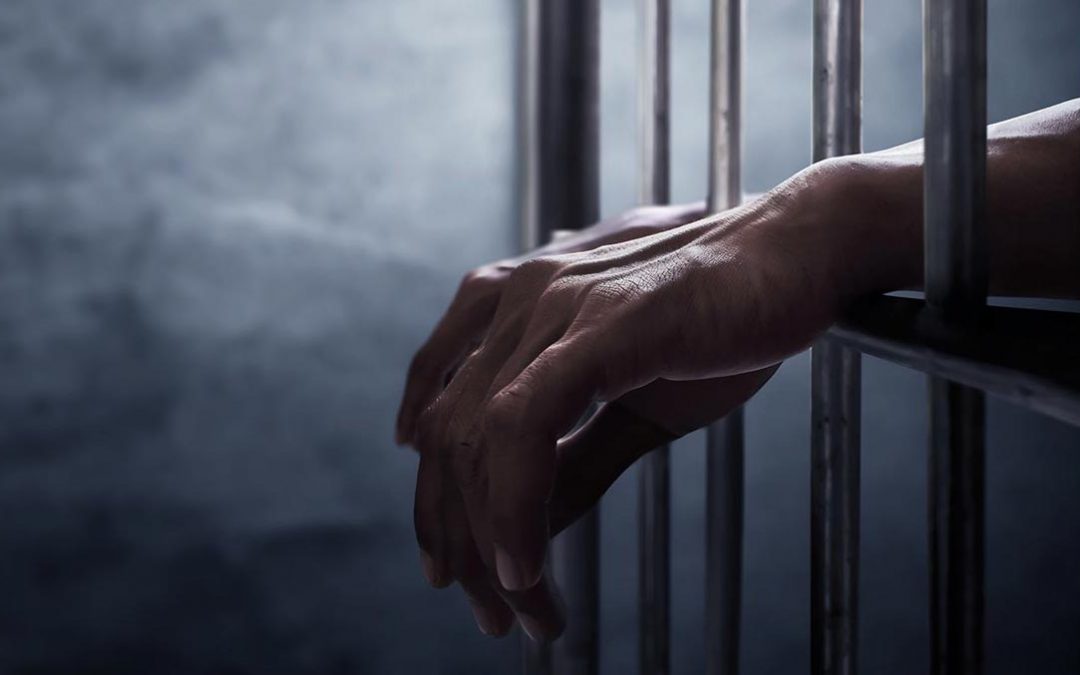This article is the first in a series on the interplay between drug abuse, crime and mental illness. Issues will be individually illustrated by my experiences as a paramedic. – EDN
The USA incarcerates more people than the rest of the developed world combined. Is it because Americans are too wild to be free, or because we lock up people for things other countries don’t? (For Libertarians, the answer, “the latter,” is a deep-tendon reflex.)
We incarcerate for which things that nobody else does? Illicit drug use is the most obvious factor. But just as important is the role mental illness plays in the incarceration syndrome. Drug abuse and mental illness intertwine (I think of it as a DNA helix). Mental illness can be induced by illicit drug use, but more commonly, the mentally ill self-medicate with illicit drugs.
I’ve written before on how the drug addiction ecosystem is self-sustaining, like any other “successful” eco-system. Take heroin addiction: a person exposed to heroin has about a 1 in 4 chance of getting addicted. Heroin addicts aren’t usually productive, so they deal heroin (or are involved in some other underworld caper), which is how the next 4 adventurers are exposed, of which 1 becomes addicted, and on and on.
Treat the addict with a supply of heroin, the other 3 never are exposed, and the criminal underworld that causes the lion’s share of America’s outlier violence dries up. A tiny fraction of the cost to society of illicit drug use will sustain the addict, and mitigate the health effects of his disease (an anoxic brain injury from an overdose can create a vegetable costing society hundreds of thousands of dollars a year). This is the counter-ecosystem of Heroin Assisted Treatment (HAT), which has been used all over the developed world.
Everyone else in the developed world also has a similarly successful counter-evolution for managing the syndrome of mental illness and criminality: estimates have shown as many as half of all incarcerated Americans have diagnosable mental illness. Americans are sending our mentally ill into our legendarily traumatic incarceration system, inducing Post Traumatic Stress Disorder (PTSD) on top of whatever mental illness put them in prison. We are stacking mental illness on top of mental illness, and probably inducing mental illness in the mentally-well.
Post Traumatic Stress Disorder is known to be a “valid” mental disorder. We have studied tens of thousands of veterans we dispatched to war, who were among the [most-high functioning] people ]6 among us, and we have gotten them back profoundly damaged from PTSD.
Stir into the devil’s brew that a criminal record cuts the ex-con off from all but the most meager of livelihoods, further recruiting them into the black market attrition, where background checks are as rare as resumes. While their mental illness (pathologies stacked now) continue as before.
Managing the syndrome with incarceration costs more than sending them to Harvard. The cyclical nature of the approach all but assures they will need multiple semesters. With this perspective in mind, do I even need to cite our recidivism rates?
Those are costs before we even tally the fact that these people will get old, and will get sick, and will one day retire from the game. But it’s extremely unlikely they will ever be anything but dependents. If you are against welfare, you shouldn’t support a process that makes it the most likely outcome.
We have written blank checks for incarceration (and war) for decades. Setting aside a portion of the check for mental health today would shift the cycle over time. This is not at all crazy, every other nation in the developed world does it.
What’s crazy is continued iatrogenic incarcerations for mental illness.


Active Comment Threads
Most Commented Posts
Universal Background Checks – A Back Door to Universal Registration
COVID Mask Follies
When Everything Is Illegal…
An Anti-Vax Inflection Point?
“Not In My Name”
The Great Social Media Crackup
War Comes Through The Overton Window
The First Rule of Italian Driving
Most Active Commenters